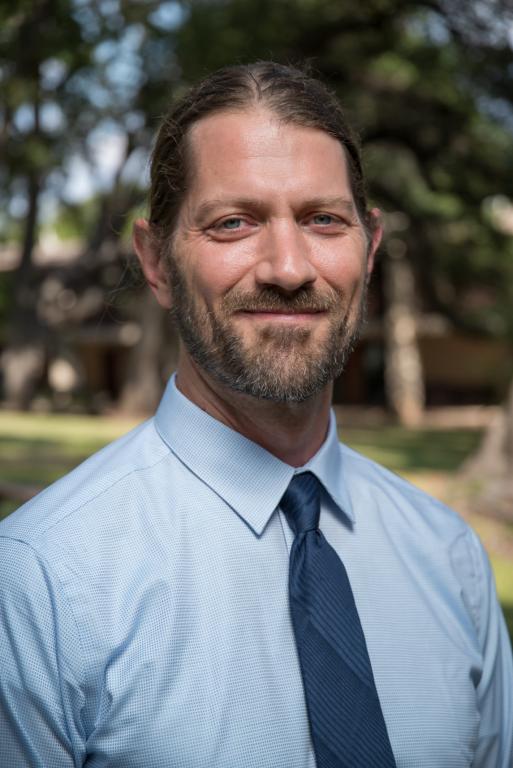
by Anthony Baker
Many of us who have said the Our Father countless times in common or in private prayer have noted in passing a little theological puzzle around the forgiveness petition. “Forgive us our sins as we forgive those who sin against us.” How ought we understand the “as?” Does it imply that God’s forgiveness comes to us “in the same way” as our forgiveness to others? Or perhaps “at the same time?” It doesn’t take long to feel the pressure of the Reformation debates here: does the prayer suggest that something humans do, namely offering forgiveness to one another, has some effect on the grace of forgiveness God desires to give?
Teresa of Avila (1515-1582) lived through the years of Reformation upheaval, mostly from her Carmelite monastery in Spain. In her commentary on the Our Father, a part of her larger work called The Way of Perfection, Teresa hints at an ordering of human and divine action that makes our efforts a kind of playful experience of God’s grace. Mutual love, she says, is the thing God most wants us to experience on earth—“How greatly the Lord must esteem this mutual love of ours for one another!” (241). But giving and receiving love—good, true, authentic love– is both what we most long for and also the virtue most difficult for us to acquire. That’s why we need to also get in some practice at forgiving and being forgiven. To allow this practice that in turns allows us to love well, God makes it into a kind of game. I’ll call it the forgiveness game. And here is how you play:
A person sins against me. I pray the Our Father and find myself stuck on the forgiveness line. (For a difficult and rich expression of just this sticking point, see Emmanuel Katongole’s account of Ugandan mothers attempting to pray for the warlords who had kidnapped their children.) Teresa notes that the line reads “as we forgive,” como perdonamos, but intentionally takes it a step further: “because we forgive,” porqué perdonamos. Forgive us because we forgive. You can already feel Martin Luther’s acid reflux welling up. Is God withholding forgiveness from me until I “cause” God to give it to me by forgiving this person?
But there’s something important here that Luther misses, likely because he’s looking for the Rolaids. Teresa knows that nothing we can do can earn God’s gracious gift of forgiveness. In fact, that is why she pins the gift exactly here, on the very virtue of mutual love that God is wanting to give us:
The good Jesus might have put everything else before our love for one another, and said: ‘Forgive us, Lord, because we are doing a great deal of penance, or because we are praying often, and fasting, and because we have left all for Thy sake and love Thee greatly.’ But he never said [any of that]. He simply says: “Because we forgive.” (241)
The granting of forgiveness is not pinned on works that we do, as wages suitable to a job, but neither is it given as a free gift to those who couldn’t possibly recognize what it was that they were receiving. It is given to me because I have “played” forgiver, and can recognize that act as a little way of sharing in the agency of God.
Part of the challenge here is the way that we read the word “because,” which was a problem for the debates during the Reformation as well. They lost track of a classical philosophical distinction between kinds of causality, and so made every cause into an efficient cause, which is to say a cause that is directly or indirectly responsible for an effect that it brings about. Strong updrafts of wind carrying moisture high in the atmosphere cause hail to fall in the summer. Or think of driving a car: I took a drive yesterday because I wanted to. My will is the thing that moves my body into action. If this is the only way to understand the word “cause” or “because,” then it only makes sense to say that I attain forgiveness because God forgives me, and be done with it.
For Teresa, though, there is another kind of causality at work here. Perhaps more than one other kind, but for now I will say at least one: what medieval theology called the “formal cause.” The formal cause is the pattern or structure of thing. It is what makes it the sort of thing it is. A stone is a stone because heat and pressure cooked a lot of dust (efficient cause), but it is only a stone because it is stony (formal cause). I drove the car yesterday because I chose to (efficient), but also because I am the sort of being who has the skills and capacities, most of the time, to drive (formal). This is also “why” I drove the car. I drove because I have been formed as a driver.
What God wants is to give us the supernatural gift of mutual love among one another and between us and God that only God can give. God is the efficient cause of my experience of being forgiven. But God, as a good giver of gifts, does not want to give us something we have no idea how to use, any more than a grandparent would want to give a toddler the keys to a new Dodge Charger. First we need to play at driving, so that when we have matured, we will have some vague idea of what this gift is that God is giving. We are forgiven, formally, because we have become the kind of people who are shaped by forgiveness. We have the qualities of those who do not hold sins against one another, and express gratitude to one another when we show mercy.
It’s a long haul, being forgiven, since for most of us it’s a far more difficult skill to acquire than driving a car. But because of its very difficulty, Jesus hinged the reception of God’s mercy on this practice. Only by participating in the gift can I receive it.
To borrow an example from human growth and development, you might imagine the way that parents and caregivers enculturate children into a world of adult responsibilities. A child tries to sweep the floor, and the parent no doubt stands for a moment wondering whether to take over or walk away and come back later to do it again when the child isn’t watching. Child psychologists Stephen Glenn and Jane Nielsen hope that we will choose the latter, since only by allowing the child to feel like a functional part of a world of grown up responsibilities will he or she actually one day become one. “Here, let me do that for you, you’re making a bigger mess” is the quickest way to ensure that the child never learns to sweep. And also, I would add, never learns the challenges of getting under the refrigerator, negotiating the lip of the dustpan, never feels the frustration of the dog or the little brother walking through the dirt pile. The child grows into the form of a floor sweeper, a mature person capable of caring for common spaces, by playing at sweeping before she even can effectively handle the broom.
We become shaped as mutually loving people by playing at the virtue of forgiveness before we even know what we’re doing. We learn the difficult moments and the tricky angles—what about the person who hurt me and isn’t sorry? What about the person who didn’t hurt me, but hurt someone I love? What about the person whose sins are tangled up in addiction, and so not in any obvious way under their control?— so that we can come to appreciate how great a gift forgiveness is.
And then, when we realize we are learning the game, and mutual love is growing in and among us, we notice with gratitude that we are also being forgiven: that God has forgiven our sins. Because God makes that sort of effect happen, and also because we have become the sorts of people who know forgiveness when we see it.


















